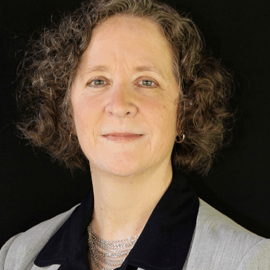
The Politics of Change
Sometimes, elections do more than just decide who is going to lead us; sometimes, they also decide how we are going to be led. The meaning of political symbols can change, and both the substance of politics and the symbols through which politics are communicated can change along with them. The 2008 presidential election may just be one of those times.
Every few generations, political parties are remade. After a brief period of confusion, parties that once stood for one set of things and attracted one set of voters come to stand for another set of things and attract different voters. When this happens, the rules and institutions of governing can also change. These changes are deep, important, and lasting. They are big moments in political history, and we haven't had one since the 1930s, when Franklin D. Roosevelt gave us the New Deal, and began the kind of government that led to an increase in the size of the federal bureaucracy.
Some people thought that because of his stress on “getting government off the backs of the American people,” Ronald Reagan would change the way the nation was governed, but he had more success changing the Republican Party than altering the federal government. He ended up making a number of compromises, and did less to change governing structures than one might have expected. Mostly, this is because government is big and hard to move.
It is also true, however, that changing government requires action by elected officials. These people benefit from current institutional arrangements, and have little to gain by changing them. And this is why elections are so important—if enough voters demand change, if they act to change the rules through their votes, then those who want to keep their jobs in Washington will go along. This is what happened in the 1930s—and it is why so many Republicans lost their jobs in that decade.
In many ways, the 2008 election could be one of the elections that allow for fundamental change. John McCain is well-positioned to poach some voters who usually vote Democratic, and Barack Obama may also be able to capture some Republicans. So it is possible that the political parties could be changing.
In the primaries, Obama had some trouble getting the votes of blue collar whites, who tended to favor Hillary Clinton, and who may vote for McCain in the fall. It is easy to attribute this to simple racism, but these are also people who are hawkish on Iraq and suspicious of arguments about social justice that seem to exclude them as deserving of help. They are responsive to class appeals and their votes are potentially up for grabs.
Obama, on the other hand, is well-positioned to attract voters who have skewed Republican in the past. These voters are deeply disappointed by the Bush presidency, angry about the economy and Iraq, and disgusted with the corruption and political problems that have plagued the Republicans. They also distrust McCain, who, while considerably less of a maverick than the media seem to believe, is also not the most consistent conservative on the Capitol Hill.
Either candidate can win this election by keeping their own partisan base and appealing to a few voters from the other side—so long as those few are in the important battleground states. If this happens, it may well be a short term change based on personality, and the chances of this election forging big changes in our political system will be slim.
On the other hand, important and lasting change is possible. For such change to occur, four things need to happen. The election must be decided on issues, not just personality. Long-term change is rarely built on individual charisma alone. Second, the public must continue to be engaged. If they stop paying attention, or if they decide that they have no influence in Washington, the chances are that both policy and the political process will continue unchanged Third, the issues that decide the election must also be turned into public policy. If they do not get proposed as new legislation, or if that legislation fails, there will be no serious change. Finally, changes will have to be made in the way we go about governing. There will be no major change if the substance of policy differs from the past; if the institutions themselves are unaltered, the changes will not be lasting.
This is a tall order; changing a political system is not easily accomplished. But the possibility is there, and this election may be historic in more ways than one.


